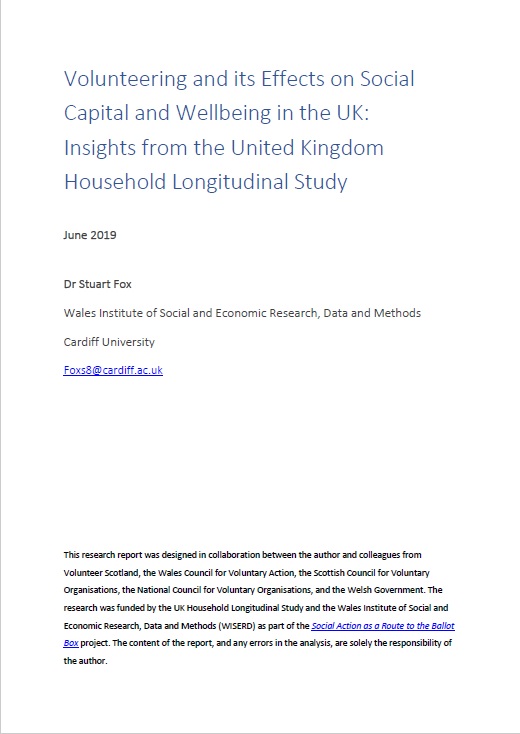This project examines the benefits of volunteering for the political engagement of young people in the UK. Voting is the single most common and important form of political participation in a democracy, and yet today’s young voters have an unprecedented reluctance to turn up at the ballot box. What’s more is that this decline of engagement is not limited to voting – whether it is joining community associations such as sports clubs or trade unions, taking part in protests or lobbying politicians, Millennials are less likely to be active than their parents or grandparents were at the same age. Perhaps even more concerning is that there are some Millennials who are even less likely to be active than their peers, particularly those from poorer backgrounds or who do not go to university.
One activity that seems to buck this trend, however, is volunteering. Millennials are at least as likely to join volunteering organisations and take part in voluntary work as their elders, and some evidence suggests that they might even be more likely to do so. Volunteering is not only an activity that brings great benefit to communities and vulnerable people in our society, it brings great benefits to the volunteer as well: it helps to develop transferable skills in teamwork, leadership, independent working and time management; it gives people access to new skills and experiences; it develops their awareness and knowledge of community issues; and it expands and develops social networks. All of these are valuable resources that can benefit the volunteer in many spheres of life, not least politics. People who have more developed cognitive skills, who are aware of and knowledgeable about community issues, and who have extensive social networks are more likely to possess the resources and motivation to vote in elections.
There is a clear potential, therefore, for volunteering – and schemes that promote volunteering, such as National Citizen Service – to make it easier for young people to vote and to reduce the turnout gap between young and old in elections. There is also a potential for volunteering to be disproportionately beneficial to young people from poorer backgrounds, as they have access to far fewer sources of political information, skills and social networks than someone from a middle-class family and/or who went to university.
This project examines that potential and determines whether it is being realised. Using the UK Household Longitudinal Survey (also known as Understanding Society), it looks at whether volunteering provides young people with the skills, information and networks that makes them more likely to vote, and considers whether the benefit is particularly profound for young people from poorer backgrounds. The findings of the project will be used to assess the effectiveness of government schemes designed to promote volunteering. Working with civil society partners such as the Wales Council of Voluntary Associations and the National Council for Voluntary Organisations, it will also develop a series of policy recommendations for the Welsh, Scottish and UK Governments regarding their support for volunteering schemes, and how they could use those schemes to address the growing divide in turnout and political engagement between Millennials and their elders.
Twitter link: #volunteering&voting



